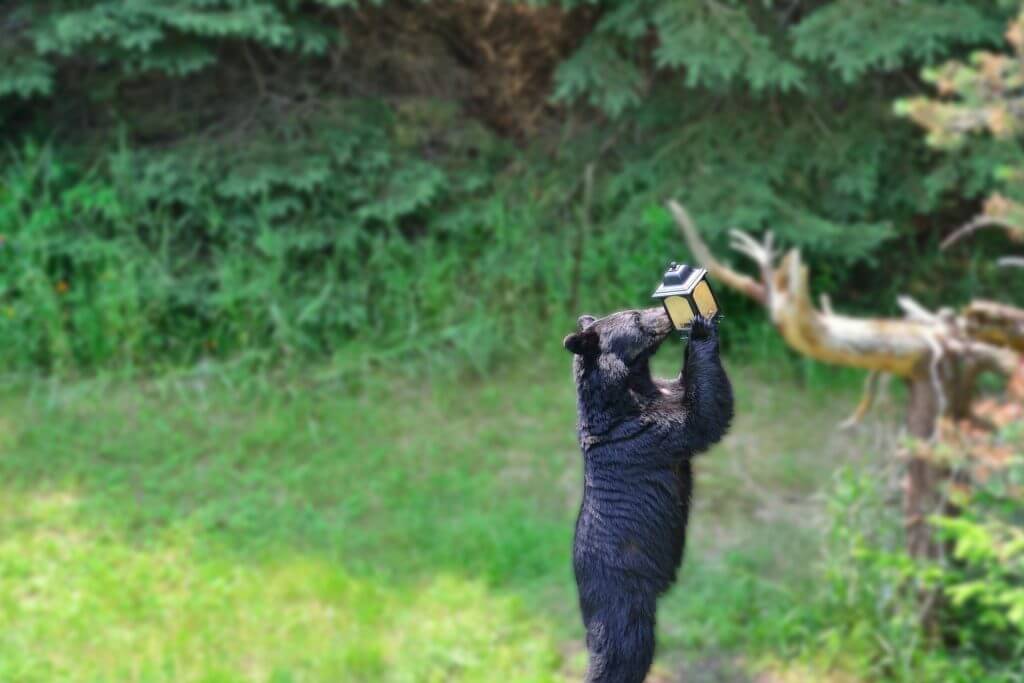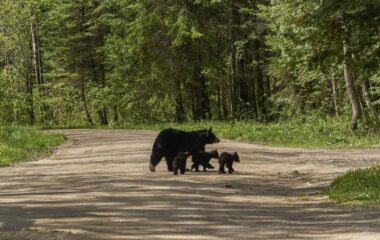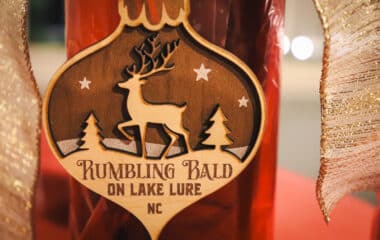Western North Carolina is home to a vast array of creatures – including those of us at Rumbling Bald. Our home here in the Blue Ridge Mountains is also shared by animals ranging from tiny chipmunks, regional birds, black bears, and more. When living or visiting at Rumbling Bald, it’s important to understand how to cohabitate with our wildlife neighbors in every season.
Here are some basic tips from NC Wildlife on how to encounter the natural wildlife in our environment:
DO NOT FEED
This may seem like an obvious one, but these animals are not domesticated pets. However, they will learn to come around more if provided with a free meal. If individuals intentionally provide free food, animals will continue to come back for easy pickings. This leads to more sightings and interactions in our populated areas leading to potential trouble. Our poor behavior directly correlates to the unnatural poor behavior of these animals. Not to mention harms these animals by providing food that is not in their normal diet.
REMOVE OR SECURE POTENTIAL FOOD SOURCES
Similar to intentionally feeding animals, unintentionally feeding results in the same trained behavior. Garbage left outside is inviting animals to a free feast. Instead move your garbage inside buildings where wildlife cannot enter, such as a supply shed or garage. There are also trash containers that allow for garbage to be kept outside your home, but under a secure latching system – check out these bear-resistant ones here. Also, be careful of leaving food inside your cars as some bears take this as an open invitation to enter your vehicle.
DON’T LEAVE PET FOOD OUT
Pet food is also wild-animal food. Even remnants of food on your pet’s bowl could entice wildlife to approach your home. Store your pet’s food inside your home or keep it securely locked down. The last thing you want is your furry family member to run an increased risk of meeting a larger animal outside.

NO BIRD FEEDERS DURING BEAR SEASON
If you love bird watching, you might be bear watching this season when you leave out bird feeders. Much like how squirrels and dear love to indulge in bird feed, bears will too. The most failsafe way is to remove bird feeders in their entirety during bear season (March-November). However, bird lovers can take alternative approaches to keep feeders away from bears. Be sure to keep your bird feeders well away from your house suspended 10 feet off the ground and away from the trunks of trees.
WATCH FROM A DISTANCE
Again, these animals are not domesticated pets. Keep your distance and observe from a safe space. There is no guarantee on how these wild animals will react to you, so keeping away is the best way to ensure all parties feel safe and secure.
Rumbling Bald on Lake Lure is in a geographical area that has a large range of animals. We live in their neighborhood as much as they live in ours. Additional information regarding our North Carolina wildlife can be found here along with learning to be “Bear-Wise” here. Help us to live responsibly alongside our natural wildlife and to coexist around these mountain animals.








